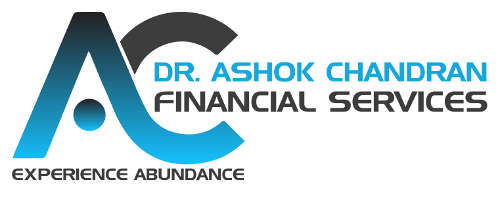Health insurance is an essential financial tool that ensures you and your family receive the best medical treatment without financial strain. With the rising cost of healthcare, having an adequate health insurance policy is crucial. Here are the most important aspects to consider when purchasing health insurance in India.
1. Start Early
- Health insurance premiums are lower when purchased at a younger age.
- A good health status ensures eligibility for better coverage options.
- Early insurance protects against unexpected medical emergencies in the future.
2. Adequate Coverage
- Choose a sum insured that accounts for rising medical costs.
- Higher coverage is always better. If affordability is an issue, opt for a super top-up plan.
- Ensure that the base policy and top-up policy are from the same insurer and cover the same policy period.
3. Cashless Facility
- Prefer policies with an extensive network of hospitals to avail cashless treatment.
- Cashless hospitalization eliminates the hassle of upfront payments and reimbursement delays.
4. Pre & Post Hospitalization Coverage
- Ensure that the policy covers pre-hospitalization expenses (like diagnostics and consultations) and post-hospitalization expenses (such as follow-ups and medication).
5. No-Claim Bonus (NCB)
- Some insurers offer NCB benefits, which increase the sum insured for every claim-free year.
- This acts as a reward for maintaining good health and avoiding unnecessary claims.
6. Daycare & OPD Coverage
- Modern medical treatments often don’t require long hospital stays.
- Look for policies covering daycare procedures (such as chemotherapy, dialysis, and cataract surgery) and OPD (Outpatient Department) expenses.
7. Pre-existing Diseases (PED)
- Check the waiting period for pre-existing diseases before coverage begins.
- Ensure all pre-existing conditions are declared at the time of policy purchase to avoid claim rejections.
8. Maternity & Family Floater Plans
- For families, a family floater plan is cost-effective as it covers multiple members under a single policy.
- If planning a family, ensure the policy covers maternity expenses and newborn coverage.
9. Lifetime Renewability
- Always opt for policies that offer lifetime renewability, as healthcare needs increase with age.
10. Tax Benefits
- Health insurance premiums qualify for tax deductions under Section 80D of the Income Tax Act.
11. Room Rent & Sub-limits
- Some policies have room rent caps and sub-limits on specific medical procedures.
- Choose a policy with no room rent limit to avoid additional out-of-pocket expenses.
- Modern treatments should be covered like other treatments, with no limits till the sum Insured.
12. Waiting Period:
Always check the policy's waiting period clause. Typically, in a fresh policy, there would be a 30-day waiting period for everything except an Accident, a Waiting period of 2 years for specified Diseases like Hernia, Cataracts, Varicose Veins, etc., and a 2 or 3-year waiting period in case of Pre Existing Diseases.
In the case of Porting, ensure that all the continuity benefits are ported and the waiting period need not be repeated.
13. Cover the Entire Family
-
Ensure that all family members, including a newborn baby, newly married spouse, or elderly parents, are covered.
-
Encourage close relatives (siblings, in-laws) to have their own insurance to prevent financial burdens during medical emergencies.
14. Premium Payment Options
-
Multi-year payment locks in the premium and protects against future premium hikes.
-
If opting for annual payments, ensure timely renewal to maintain continuity.
-
Avoid installment payments, as missed payments can lead to policy lapses.
15. Corporate Group Cover vs. Personal Cover
-
Employer-provided health insurance is not a substitute for personal health insurance.
-
If employment ceases, so does the corporate health cover.
-
Having a separate individual or family health plan ensures continued protection regardless of employment status.
-
A personal policy ensures that you have a cover as per your real need and not a common group policy as per the corporate objectives or generic needs of the majority in the group.
16. Where to Buy?
-
Always buy health insurance from a qualified and experienced insurance advisor.
-
A good advisor helps in selecting the right policy and ensures smooth claim settlement.
-
Online purchases may be convenient but often lack personalized guidance during claim processes.
17. Policy Wordings:
The final agreement is the Policy Document. Ensure that you go through all the important commitments of the Policy. You finally get only what is written in black and white in this document, nothing more or less.
18. Policy Review:
Review your policy from a Health Insurance Specialist or Personal Finance Professional 45 Days before the renewal of the policy.
Check if the sum insured in the policy is adequate; check the new products from the same insurer, and check the options available in the market and their features. If the features in your policy are outdated or insufficient, migrate to a new policy with the insurer with all the features. Port into a new insurer/product only if the existing product /Insurer is really not up to date with the times and does not serve your needs. Try as much as possible to stick to the same policy, as frequent movements take away all the No-claim benefits and sometimes get investigated during claims.
19. The Claim Process:
Send an Intimation to the Insurer as soon as possible in case of the claim, and get an Intimation/claim No. This will be useful to trace this claim till it gets settled.
Check if your hospital is blacklisted by the insurer. Check if it is a network hospital and provides a Cashless facility; always go for the cashless facility to avoid overcharging by hospitals and deductions in the claim during reimbursement.
Always be truthful and follow the process, Claims get rejected only when you have not declared all the relevant facts during the policy proposal stage or if something is pending in the documentation as per the process. A clear case is always settled without any hassles. The policy document has a grievance redressal process that can be followed in case you are not satisfied with the claim settlement. After escalating within the Insurer's organisation, you can also complain to the Ombudsman in your region for redressal of your complaints as per the process defined.
20. Emergency Preparedness:
Ensure that your family is aware about your Insurance and the policy copy is handy with close family members in case of an emergency.
Identify hospitals near your office and workplace that are part of the Insurers Network and provide cashless hospitalisation.
Inform the Insurer's Toll-Free Number and your Insurance Advisor about the emergency.
Do not panic, and just follow the process.
Final Thoughts
Health insurance is not just about securing medical expenses; it’s about ensuring financial stability during unexpected health crises. Choosing the right policy with adequate coverage and understanding the policy terms can make a significant difference in times of need. Start early, stay informed, and prioritize your family's health security today!
Dr. Ashok Chandran, Certified Financial Planner®
Ph.D, SMP(IIM-Cal), QPFP®, CFP®, CMC®, MBA
Mail:







